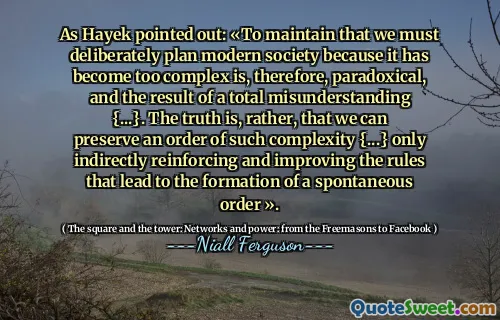
As Hayek pointed out: «To maintain that we must deliberately plan modern society because it has become too complex is, therefore, paradoxical, and the result of a total misunderstanding {...}. The truth is, rather, that we can preserve an order of such complexity {...} only indirectly reinforcing and improving the rules that lead to the formation of a spontaneous order ».
Hayek argues against the notion that modern society's complexity necessitates deliberate planning. He believes that this perspective stems from a profound misunderstanding of social order. Rather than imposing rigid plans, he emphasizes the importance of nurturing existing frameworks that allow for a natural, spontaneous organization of society.
Niall Ferguson, in "The Square and the Tower," echoes this sentiment by highlighting how effective societal operations arise from organic networks instead of top-down control. He suggests that enhancing the underlying rules that govern interactions is crucial for maintaining a complex social order, rather than attempting to micromanage societal functions through planned interventions.






